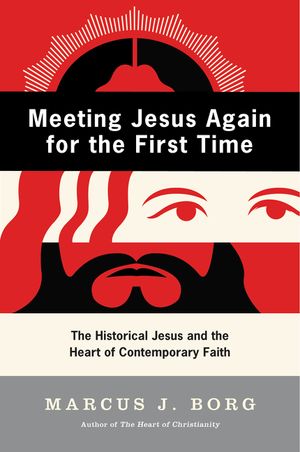Meeting Jesus Again for the First Time: the Historical Jesus and the Heart of Contemporary Faith by Marcus Borg is the Good Book for now.
Borg like many of us first met Jesus in his family's church (Lutheran for him) but has evolved his awareness and relationship through out his life. And his 30 years plus as a scholar of early Christianity and the Bible have helped.
Borg sketches Jesus in a manner very different than we learned in Church or that we routinely hear even now among mainstream discussions. No longer to be found are images of Jesus as divine or as savior by atonement for everyone's sins. There are no indications he spoke of himself as the son of God, or planned to start a new religion. He is not the judge of right and wrong and does not insist on believing.
Instead the Jesus we meet is a "Spirit Man," one of those people who relates to Spirit (and in his Jewish culture this is Yahweh) and can communicate this relationship to others. And he invites others to relate to this Spirit too. He stresses a resistance to the prevailing cultural worldly powers as a means of transformation and liberation. An interesting irony is that even the current church culture can become an oppressive power. Compassion is the overriding current in Jesus' ministry.
There was nothing on Easter morning that could have been video taped. For Borg, the idea of an empty tomb is irrelevant. What was being described were experiences of the early followers who continued to feel Jesus' presence and influence in there lives. They could say, "he is Risen and he is Lord."
And much of what we read in the Canon is the post-resurrection community's efforts to metaphorically express their feelings and experiences of Jesus. So they saw him as someone they could hear and see. Some thought he must have had a special birth. Perhaps he was even present from the beginning.

Borg easily merits the title of author of a Good Book.
------ the Bishop